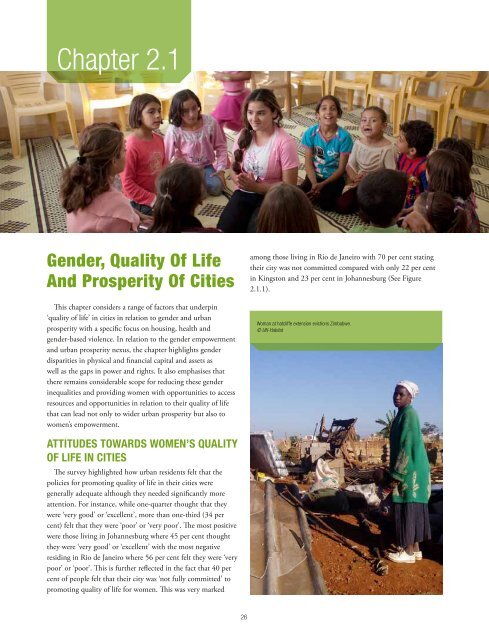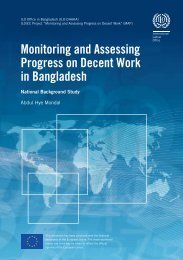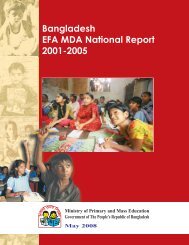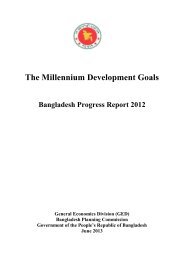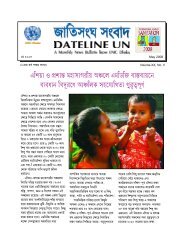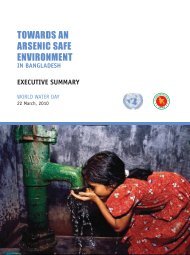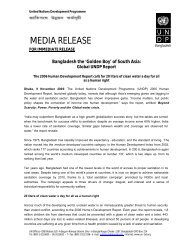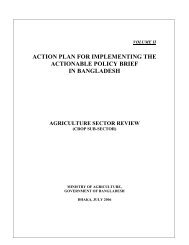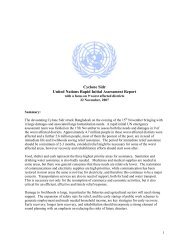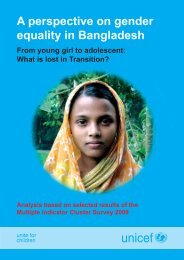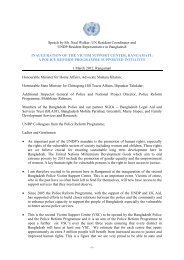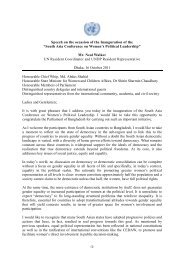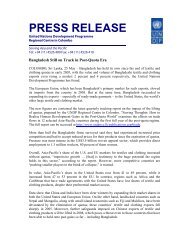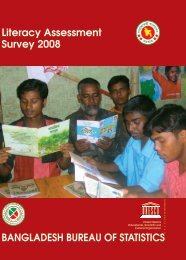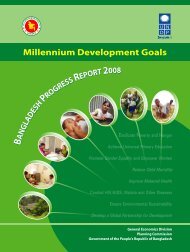STATE OF WOMEN IN CITIES 2012-2013 - UN-Habitat
STATE OF WOMEN IN CITIES 2012-2013 - UN-Habitat
STATE OF WOMEN IN CITIES 2012-2013 - UN-Habitat
You also want an ePaper? Increase the reach of your titles
YUMPU automatically turns print PDFs into web optimized ePapers that Google loves.
Chapter 2.1<br />
Gender, Quality Of Life<br />
And Prosperity Of Cities<br />
This chapter considers a range of factors that underpin<br />
‘quality of life’ in cities in relation to gender and urban<br />
prosperity with a specific focus on housing, health and<br />
gender-based violence. In relation to the gender empowerment<br />
and urban prosperity nexus, the chapter highlights gender<br />
disparities in physical and financial capital and assets as<br />
well as the gaps in power and rights. It also emphasises that<br />
there remains considerable scope for reducing these gender<br />
inequalities and providing women with opportunities to access<br />
resources and opportunities in relation to their quality of life<br />
that can lead not only to wider urban prosperity but also to<br />
women’s empowerment.<br />
among those living in Rio de Janeiro with 70 per cent stating<br />
their city was not committed compared with only 22 per cent<br />
in Kingston and 23 per cent in Johannesburg (See Figure<br />
2.1.1).<br />
Woman at hatcliffe extension evictions Zimbabwe.<br />
© <strong>UN</strong>-<strong>Habitat</strong><br />
Attitudes towards women’s quality<br />
of life in cities<br />
The survey highlighted how urban residents felt that the<br />
policies for promoting quality of life in their cities were<br />
generally adequate although they needed significantly more<br />
attention. For instance, while one-quarter thought that they<br />
were ‘very good’ or ‘excellent’, more than one-third (34 per<br />
cent) felt that they were ‘poor’ or ‘very poor’. The most positive<br />
were those living in Johannesburg where 45 per cent thought<br />
they were ‘very good’ or ‘excellent’ with the most negative<br />
residing in Rio de Janeiro where 56 per cent felt they were ‘very<br />
poor’ or ‘poor’. This is further reflected in the fact that 40 per<br />
cent of people felt that their city was ‘not fully committed’ to<br />
promoting quality of life for women. This was very marked<br />
26


